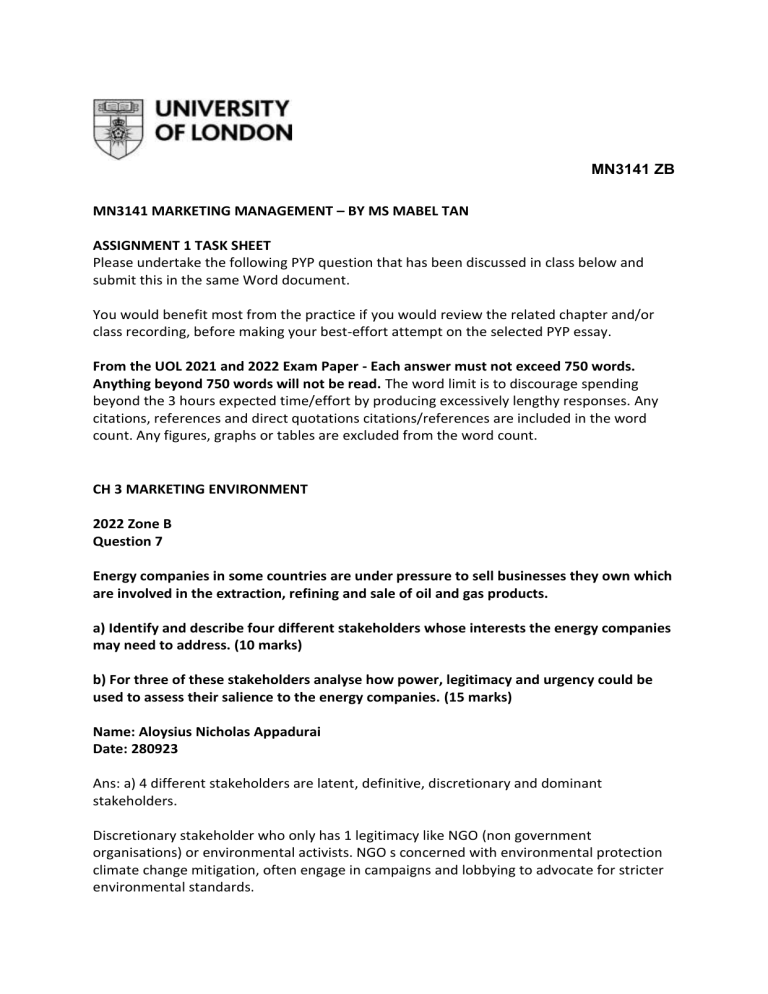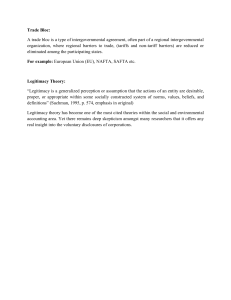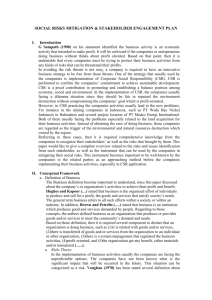
MN3141 ZB MN3141 MARKETING MANAGEMENT – BY MS MABEL TAN ASSIGNMENT 1 TASK SHEET Please undertake the following PYP question that has been discussed in class below and submit this in the same Word document. You would benefit most from the practice if you would review the related chapter and/or class recording, before making your best-effort attempt on the selected PYP essay. From the UOL 2021 and 2022 Exam Paper - Each answer must not exceed 750 words. Anything beyond 750 words will not be read. The word limit is to discourage spending beyond the 3 hours expected time/effort by producing excessively lengthy responses. Any citations, references and direct quotations citations/references are included in the word count. Any figures, graphs or tables are excluded from the word count. CH 3 MARKETING ENVIRONMENT 2022 Zone B Question 7 Energy companies in some countries are under pressure to sell businesses they own which are involved in the extraction, refining and sale of oil and gas products. a) Identify and describe four different stakeholders whose interests the energy companies may need to address. (10 marks) b) For three of these stakeholders analyse how power, legitimacy and urgency could be used to assess their salience to the energy companies. (15 marks) Name: Aloysius Nicholas Appadurai Date: 280923 Ans: a) 4 different stakeholders are latent, definitive, discretionary and dominant stakeholders. Discretionary stakeholder who only has 1 legitimacy like NGO (non government organisations) or environmental activists. NGO s concerned with environmental protection climate change mitigation, often engage in campaigns and lobbying to advocate for stricter environmental standards. Discretionary stakeholders have no powers to influence marketers such as NGOs which are involved and concerned about the environment. Definitive stakeholder like UN climate change conference parties or the government. concerned about national carbon emission level which is an environmental concern. Government publics such as regulatory bodies are keen on environmental sustainability and public safety. Dominant stakeholder like the shareholders who are informed of business to keep or sell business as well as involved in extraction, refining and sale of oil and gas products. Shareholders of the company who will incur loss. Investors and shareholders want financial return and long-term sustainability. They want energy companies to make profitable decisions when considering environmental, social and governance (ESG) factors. Latent stakeholders like employees if there might be a change of employers or change of jobs for employees in oil plants. Employees (latent stakeholders) of the company who may get laid off if business gets sold. Another group of latent stakeholders who are affected are consumers, who brought goods and services of the company, as they will have to look for alternatives. b) Government is a definitive stakeholder. It has the power to ask energy companies to sell business even if its against the desires of these energy companies. Government can introduce stricter emission standards or impose taxes to show that their power can significantly affect operations of such energy companies. Government has legitimacy; its claims to protected national interest are widely accepted to be right, good and fair. This is to balance gas supply and prices. Government also has urgency due to environmental reports and damage. It is time critical to shut down operations. This is to avoid gas market collapse. It has highest priority or salience as most resources spent by government to address issues tend to be due to energy companies being responsible. Employees affected by operations of extracting and refining by oil companies. They have no power as they cannot directly affect decisions of energy companies. Influence on job positions not secure. Employees have no urgency. assumption is local government will take over extraction and refining operations. claims by employees seen as non urgent. Employees have legitimacy. Claims to accept their jobs and income are social accepted to be right, fair and just. Shareholders can be differentiated by their power and legitimacy. energy companies are likely to prioritize minimising losses while having to deal with obligatory issues only. Hence, stakeholders with both power and urgency attributes would be first concern of these companies, such as government, legal issues (definitive or dangerous). Given nature of this industry, these companies would already have pre existing issues with dependent stakeholders. However, so long as they are lacking power to emphazise change, it would be of a lower priority as profit is greater than costly green approaches.






